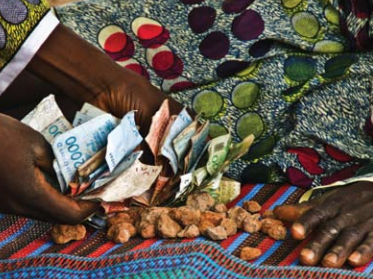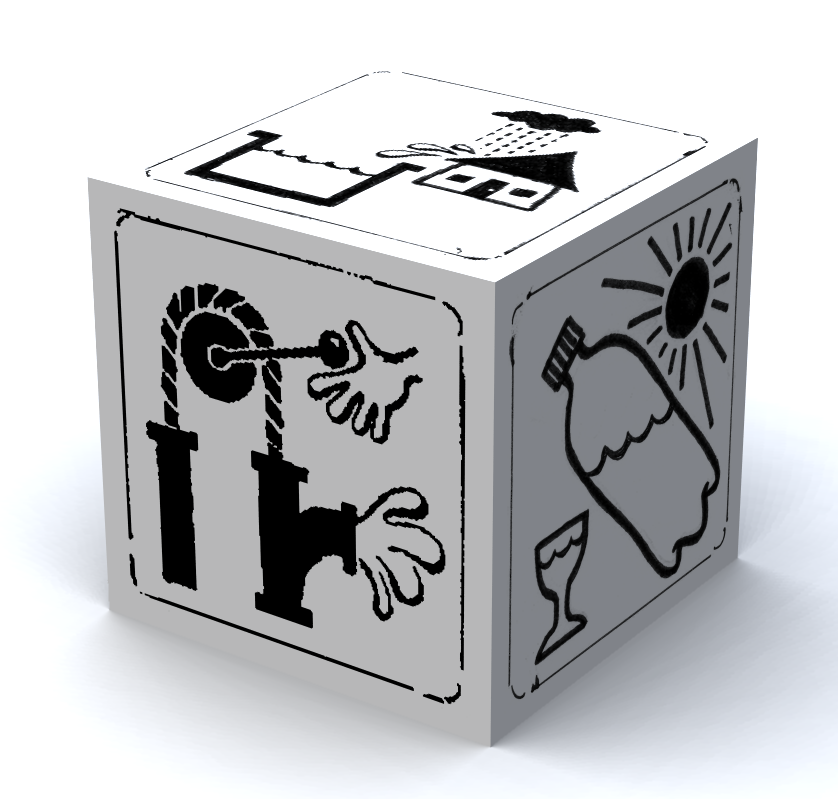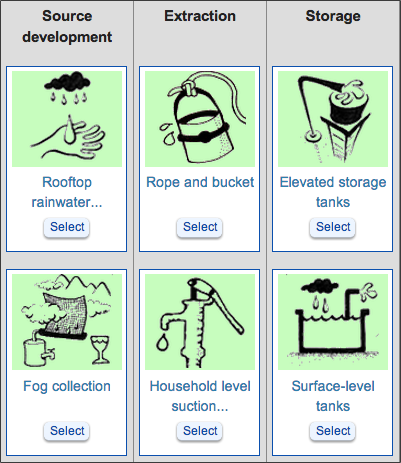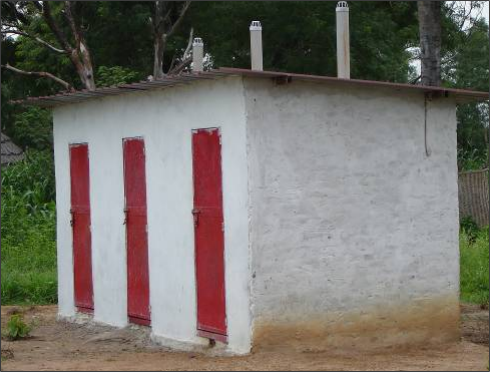|
|
| Line 60: |
Line 60: |
| | [[File:sust portal icon.png|right|100px|link=Sustainability Portal]] | | [[File:sust portal icon.png|right|100px|link=Sustainability Portal]] |
| | * '''NEW PORTAL:''' [[Sustainability Portal|<font size="2">'''Sustainability Portal'''</font>]] - [http://www.irc.nl/ IRC] and Akvopedia have teamed up to produce an all new [[Sustainability Portal|Sustainability Portal]] based on the Dutch WASH Alliance [http://www.washalliance.nl/fiets-strategy/ F.I.E.T.S. principles] of financial, institutional, environmental, technological, and social sustainability. Included are the 10-part [[Sustainability Frameworks and Tools|Triple-S building blocks]] from IRC and other sustainability frameworks. With over 50 new article pages and many more sustainability tools, slideshows, and videos... water and sanitation project members can now think about their WASH system's longevity with confidence. | | * '''NEW PORTAL:''' [[Sustainability Portal|<font size="2">'''Sustainability Portal'''</font>]] - [http://www.irc.nl/ IRC] and Akvopedia have teamed up to produce an all new [[Sustainability Portal|Sustainability Portal]] based on the Dutch WASH Alliance [http://www.washalliance.nl/fiets-strategy/ F.I.E.T.S. principles] of financial, institutional, environmental, technological, and social sustainability. Included are the 10-part [[Sustainability Frameworks and Tools|Triple-S building blocks]] from IRC and other sustainability frameworks. With over 50 new article pages and many more sustainability tools, slideshows, and videos... water and sanitation project members can now think about their WASH system's longevity with confidence. |
| − | [[Image:f-sust icon.png|right|100px|link=Community Based Savings]] | + | [[Image:comm savings sm.png|right|100px|link=Community Based Savings]] |
| | * '''NEW ARTICLE PAGE:''' [[Community Based Savings|<font size="2">'''Community Based Savings'''</font>]] - Community-based saving is a microfinance model that is considered to be an effective method for financing projects in sustainable sanitation and water management. This is an effective method for saving a small amount of money by organising or joining a saving group of up to 25 people. These people might be colleagues, friends or neighbours coming from the same community. The method is very simple and easy to implement. | | * '''NEW ARTICLE PAGE:''' [[Community Based Savings|<font size="2">'''Community Based Savings'''</font>]] - Community-based saving is a microfinance model that is considered to be an effective method for financing projects in sustainable sanitation and water management. This is an effective method for saving a small amount of money by organising or joining a saving group of up to 25 people. These people might be colleagues, friends or neighbours coming from the same community. The method is very simple and easy to implement. |
| | | | |
Welcome, bienvenue and bienvenido to Akvopedia!
|
|
Welcome to Akvopedia, the open water and sanitation resource that anyone can edit. We strive to improve water and sanitation projects through knowledge exchange on smart and affordable technical solutions and effective approaches. Akvopedia now contains 2,211 articles primarily in English, including some in French and Spanish. Akvopedia is hosted and managed by Akvo Foundation.
Water Portal
|
| The Water Portal contains information on water collection, pumping and transportation, storage, treatment, and use of water.
|
Sanitation Portal
|
| The Sanitation Portal contains information on toilets, collection, transportation, treatment, use of products, hygiene, and training materials.
|
Finance Portal
|
| The Finance Portal contains information on the costs needed to finance, how to finance these costs, and how to monitor finance.
|
Sustainability Portal - NEW!
|
| The Sustainability Portal contains information on numerous sustainability frameworks, tools, and methods, using the F.I.E.T.S approach.
|
|
|
|
What's happening now
|
| Try our all new Water Compass!
The Water Compass is our new decision support tool that can help you decide which drinking water technologies best fit your situation. It contains almost 70 water management methods or technologies applicable in asset-poor, developing regions. Grouped from sources & extraction to household water treatment & storage, they are the current best practices in developing water sectors.
In three easy steps you can discover what you need — 1) Select from a panel of criteria to specify the relevant factors for your situation, 2) Assemble a chain of technologies, and 3) Document your results. The automated selection, based on researched sustainable & suitability factors, will help you plan or discuss your options in an objective and transparent fashion. Excellent for focus group discussions or other multi-stakeholder events.
|
More news
|
- NEW ARTICLE PAGE: Communal Latrines - This article covers the topic of communal latrines, also called institutional or school latrines. Much of the material in this article is based on project successes in the Sudan. This is a portion of the document of Technical Guidelines, outlining best practices for the development of the 14 types of water supply and sanitation facilities in the Sudan. Several of them are communal (multi-user) latrines.
- NEW PORTAL: Sustainability Portal - IRC and Akvopedia have teamed up to produce an all new Sustainability Portal based on the Dutch WASH Alliance F.I.E.T.S. principles of financial, institutional, environmental, technological, and social sustainability. Included are the 10-part Triple-S building blocks from IRC and other sustainability frameworks. With over 50 new article pages and many more sustainability tools, slideshows, and videos... water and sanitation project members can now think about their WASH system's longevity with confidence.
 - NEW ARTICLE PAGE: Community Based Savings - Community-based saving is a microfinance model that is considered to be an effective method for financing projects in sustainable sanitation and water management. This is an effective method for saving a small amount of money by organising or joining a saving group of up to 25 people. These people might be colleagues, friends or neighbours coming from the same community. The method is very simple and easy to implement.
|
Contributing to Akvopedia
|
| Share your news and knowledge on water and sanitation by contributing articles to the Akvopedia. We've used the same conventions as the well-known online resource Wikipedia, so adding and editing articles is quick and easy to learn. This graphical guide will get you started; more detailed information about editing wiki articles is available in the help pages: Help:Contents
|
Editorial support
|
|
Do you have quality content that you would like to contribute to Akvopedia, but lack the time or resources to upload it? Akvopedia offers free editorial services and always appreciates suggestions and links to expand our WASH wiki. Please contact our editor Winona Azure at winona akvo.org. Thank you for visiting! akvo.org. Thank you for visiting!
|
|
|
|






